Why Investors Trust Agents Who Invest
Why Investors Trust Agents Who Invest
In the world of real estate, trust is everything. Investors—whether seasoned or new to the market—are looking for agents who understand not only the buying and selling process but the complex realities of real estate investment. For these investors, working with an agent who has skin in the game—someone who actively invests in real estate themselves—carries an undeniable credibility that goes beyond just closing deals. It speaks to expertise, shared experience, and a deeper understanding of the risks and rewards associated with real estate investment.
Here’s why investors trust agents who invest, how this experience sets you apart from other agents, and how you can leverage your knowledge through effective communication and relationship management tools like CRM.
Credibility Comes from Experience
One of the biggest reasons investors trust agents who also invest is because they know the agent has walked in their shoes. Personal experience in real estate investment carries much more weight than theoretical knowledge or industry statistics. It shows you’ve made critical decisions, dealt with market fluctuations, and reaped the benefits—or learned from losses—firsthand.
An agent who can speak from personal experience about investing is seen as more credible because they have a deeper understanding of what their clients are going through. When you tell a client about the importance of timing in a market, you can share stories of how waiting too long or moving too fast impacted your own portfolio. If you’re advising on financing strategies, you can detail the loans or mortgage options you’ve personally used. This knowledge is invaluable to investors because it demonstrates that you’ve put your money where your mouth is.
Credibility through personal investment doesn’t just mean you understand market conditions or the legal framework. It means you’ve dealt with the stress, excitement, and long-term planning that investment requires. You’ve faced the emotional rollercoaster that comes with waiting for the right deal, worrying about occupancy rates, or calculating potential appreciation. This creates a level of empathy that is critical in building trust with your investor clients.
Differentiating Yourself from Other Agents
In a crowded real estate market, being a successful investor agent sets you apart. Many real estate agents focus on traditional home-buying and selling, but fewer dive into the complexities of real estate investment. By positioning yourself as an agent who understands investment, you’re offering more than just a service—you’re providing invaluable insights, strategies, and support.
When speaking with potential clients, highlighting your personal investment experience can immediately differentiate you from others. You’re not just an agent with access to MLS listings—you’re an advisor who understands how to build a profitable portfolio, maximize cash flow, and manage properties for long-term success.
You can further set yourself apart by offering specialized investment services. This might include curating exclusive listings that match investor profiles, helping clients analyze cap rates, or sharing strategies for property management. Because you have firsthand experience in making these decisions, you’re more equipped to guide investors through these same steps. Additionally, as an investor yourself, you’re more likely to have a long-term relationship with the market, meaning you’re in tune with emerging trends, market corrections, and new opportunities in a way that resonates with your clients.
Leverage Your CRM to Showcase Expertise
One of the most powerful tools in your arsenal as an investor agent is your CRM (Customer Relationship Management) system. Your CRM isn’t just a place to store client information; it’s a platform for you to share your investment expertise, build credibility, and foster long-term relationships with your clients.
Start by using your CRM to showcase your knowledge through regular market updates. Sharing real-time data on market trends, interest rates, new developments, and rental yields keeps your clients informed and demonstrates your active involvement in the market. Regular updates build trust as clients see that you’re not only knowledgeable but also committed to helping them succeed.
Your CRM can also be a great way to share success stories. If you’ve helped clients purchase profitable investment properties, feature those stories in newsletters or targeted emails. Showcase the value you brought to the table—whether that’s in spotting an undervalued property, securing financing, or advising on long-term strategy. By sharing these real-world examples, you’re reinforcing your credibility and demonstrating the practical application of your investment expertise.
Another way to use your CRM effectively is through segmentation. Create specific groups within your CRM for different types of investors—whether they’re focused on commercial real estate, multi-family units, or vacation rentals—and send them tailored content. These personalized updates show that you understand the nuances of different investment strategies and can help clients succeed in their specific areas of interest.
Lastly, use your CRM to promote your own investment activities. Let your clients know when you’ve purchased a new property or are making strategic moves in your portfolio. This not only keeps you top-of-mind but also reinforces your commitment to real estate as an investment vehicle. When clients see that you’re continuously investing in the market, they’re more likely to follow your lead and trust your advice.
Conclusion
Investors trust agents who invest because they bring a unique level of credibility and expertise to the table. By leveraging your own experiences and using tools like your CRM to communicate your knowledge, you can differentiate yourself from other agents and build strong, lasting relationships with your investor clients. When clients see that you’re not just an agent but also an investor, they’re more likely to trust your advice, follow your strategies, and rely on you to help them build their own profitable portfolios.

